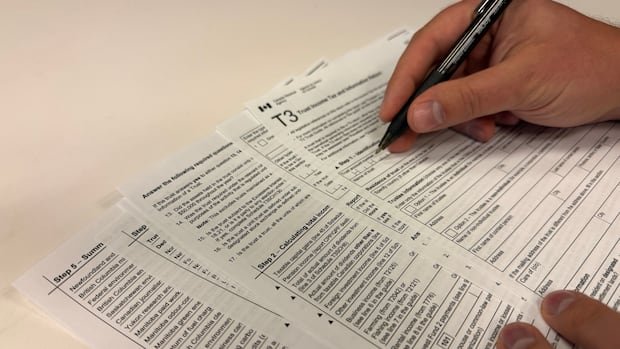Some individuals who submitted “bare trust” forms to the Canada Revenue Agency in the previous year might have done so unnecessarily as the federal government explores additional modifications to the reporting regulations — changes that could potentially lead to another tumultuous tax season, according to a cautionary note from one accountant. The government implemented new tax reporting guidelines for trusts in 2022, set to be active for the 2023 tax year. Despite being aimed at addressing issues like money laundering, terrorist financing, and tax evasion, numerous Canadians with simple bare trusts were suddenly required to complete complex paperwork. The CRA made a sudden decision in March 2024 to halt the reporting obligations for bare trusts — just before the filing deadline — citing unintended consequences on Canadians. This pause was extended last year, with the Finance Department proposing adjustments to offer clarity to taxpayers.
A bare trust arrangement involves a trustee, holding legal ownership of a property or asset but not beneficial ownership. The trustee’s role is strictly to maintain legal title to the property, requiring instructions from the beneficiary for any action, as per the government’s definition. Ryan Minor, a director at Chartered Professional Accountants of Canada, emphasized that a bare trust trustee’s primary function is legal title retention. Unlike express trusts, which are usually set up by lawyers at a client’s request, bare trusts can arise almost inadvertently — for instance, when a parent co-signs a mortgage for their child and becomes a partial owner or when an elderly parent lists their children on a bank account for bill payment assistance.
The proposed changes introduced in August would exempt specific bare trusts, as outlined by the Finance Department. Some of the exemptions include scenarios like true joint ownership, such as a joint bank account held by spouses, a parent co-signing a child’s mortgage by going on the title for the child’s principal residence, and situations where spouses jointly occupy a home but only one spouse’s name is on the title. These exemptions aim to provide certainty to parties by eliminating the need for a beneficial ownership return in certain circumstances.
Despite the CRA’s pause in 2024, more than 44,000 taxpayers, including those who engaged tax professionals, filed bare trust forms. Minor expressed approval of the proposals but suggested they could be more extensive. He highlighted the challenge of taxpayers discerning when filing is necessary and emphasized that some who filed might qualify for the proposed exemptions, underscoring the need for enhanced consultations to prevent such wasteful situations.
The taxpayers’ ombudsperson criticized the CRA for its abrupt pause in 2024, resulting in wasted time and effort. An 80-page report from François Boileau, the taxpayers’ ombudsperson, revealed that the CRA’s delayed and inadequate information hindered taxpayers and tax professionals from preparing for the new filing requirements. Norman Tollinsky from Thornhill, Ont., who enlisted an accountant to handle forms for two trusts in 2024, now anticipates only needing to file for one, given the government’s clarification efforts.
Tollinsky’s attempt to self-file trust forms in 2024 was thwarted by complexity, leading him to hope for simplified forms from the CRA for bare trust filers. Minor stressed the importance of an educational campaign by the CRA to inform affected taxpayers about the requirements and suggested refraining from imposing penalties as individuals adapt to the changes.
Regarding the enactment of changes, the CRA stated it awaits the adoption of proposed amendments before determining if Canadians must file bare trust forms this year. Should no legislation be presented, the CRA plans to explore options to alleviate the filing burden for taxpayers and preparers in the 2025 tax year. The limited time frame for enacting changes poses a challenge for the government to communicate adjustments effectively to taxpayers, requiring swift action either through legislation or a ways-and-means motion. The Finance Department indicated that legislation will be introduced in due course, as queried by CBC News from Finance Minister François-Philippe Champagne’s office.
